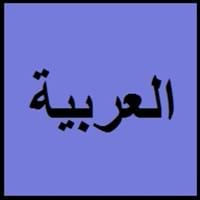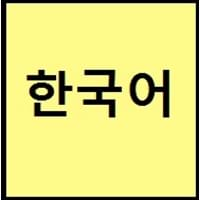Countries
Algeria, Bahrain, Chad, Comoros, Djibouti, Egypt, Eritrea, Iraq, Israel, Jordan, Kuwait, Lebanon, Libya, Mauritania, Morocco, Oman, Qatar, Saudi Arabia, Somalia, Sudan, Tunisia, United Arab Emirates, Yemen
China, Jilin Province, North Korea, South Korea, Yanbian
National Language
Algeria, Bahrain, Comoros, Djibouti, Egypt, Jordan, Kuwait, Lebanon, Libya, Mauritania, Morocco, Oman, Palestine, Qatar, Saudi Arabia, Somalia, Sudan, Syria, United Arab Emirates, Yemen
North Korea, South Korea
Second Language
Not spoken in any of the countries
Not spoken in any of the countries
Speaking Continents
Africa, Asia
Asia
Minority Language
Not spoken in any of the countries
Japan, People's Republic of China, Russia, United States of America
Regulated By
Academy of the Arabic Language, Arabic Language International Council
The National Institute of the Korean Language
Interesting Facts
- Arabic is 5th common language in world.
- Classical Arabic is the language of Quran and also it is official language. Classical Arabic is the only way to learn Arabic language in academic way and it does not change.
- Korean has borrowed words from English and Chinese.
- Korean has two counting systems. First, is based on Chinese characters and numbers are similar to Chinese numbers, and second counting system is from words unique to Korea.
Similar To
Amharic and Hebrew
Chinese and Japanese languages
Derived From
Not Available
Not Available
Alphabets in
Arabic.jpg#200
Korean-Alphabets.jpg#200
Writing Direction
Right-To-Left, Horizontal
Left-To-Right, Horizontal, Top-To-Bottom
Hello
مرحبا
안녕하세요. (annyeonghaseyo.)
Thank You
شكرا
감사합니다 (gamsahabnida)
How Are You?
كيف حالك؟
어떻게 지내세요? (eotteohge jinaeseyo?)
Good Night
تصبح على خير
안녕히 주무세요 (annyeonghi jumuseyo)
Good Evening
مساء الخير
안녕하세요 (annyeonghaseyo.)
Good Afternoon
مساء الخير
안녕하십니까 (annyeong hashimnikka)
Good Morning
صباح الخير
안녕히 주무셨어요 (An-yŏng-hi ju-mu-shŏ-ssŏ-yo)
Please
من فضلك
하십시오 (hasibsio)
Sorry
آسف
죄송합니다 (joesonghabnida)
I Love You
أحبك
당신을 사랑합니다 (dangsin-eul salanghabnida)
Excuse Me
اعذرني
실례합니다 (sillyehabnida)
Where They Speak
Algeria, Libya, Maghreb, Morocco, Tunisia
South Korea
How Many People Speak
Not Available
Dialect 2
Sudanese
Gyeongsang
Where They Speak
Sudan
South Korea
Dialect 3
Levantine
Hamgyŏng
Where They Speak
Cyprus, Levant
China, North Korea
How Many People Speak
Not Available
Second Language Speakers
Not Available
Native Name
(al arabiya) العربية
한국어 (조선말)
Alternative Names
Al-’Arabiyya, Al-Fusha, Literary Arabic
Hanguk Mal, Hanguk Uh
German Name
Arabisch
Koreanisch
Pronunciation
/al ʕarabijja/, /ʕarabi/
Not Available
Origin
512 CE
Before 1st century
Language Family
Afro-Asiatic Family, Semitic Family
Koreanic Family
Subgroup
Semitic
Not Available
Branch
North Arabic
Not Available
Early Forms
No early forms
Old Korean, Middle Korean and Korean
Standard Forms
Modern Standard Arabic
Pluricentric Standard Korean, South Korean standard and North Korean standard
Signed Forms
Signed Arabic
Korean Sign Language
Scope
Macrolanguage
Individual
ISO 639 6
Not Available
Not Available
Glottocode
arab1395
kore1280
Linguasphere
12-AAC
45-AAA
Language Type
Living
Living
Language Linguistic Typology
Subject-Verb-Object
Subject-Object-Verb
Language Morphological Typology
Fusional, Synthetic
Agglutinative
Arabic and Korean Greetings
People around the world use different languages to interact with each other. Even if we cannot communicate fluently in any language, it will always be beneficial to know about some of the common greetings or phrases from that language. This is where Arabic and Korean greetings helps you to understand basic phrases in Arabic and Korean language. Arabic word for "Hello" is مرحبا or Korean word for "Thank You" is 감사합니다 (gamsahabnida). Find more of such common Arabic Greetings and Korean Greetings. These greetings will help you to be more confident when conversing with natives that speak these languages.
Arabic vs Korean Difficulty
The Arabic vs Korean difficulty level basically depends on the number of Arabic Alphabets and Korean Alphabets. Also the number of vowels and consonants in the language plays an important role in deciding the difficulty level of that language. The important points to be considered when we compare Arabic and Korean are the origin, speaking countries, language family, different greetings, speaking population of these languages. Want to know in Arabic and Korean, which language is harder to learn? Time required to learn Arabic is 88 weeks while to learn Korean time required is 88 weeks.





